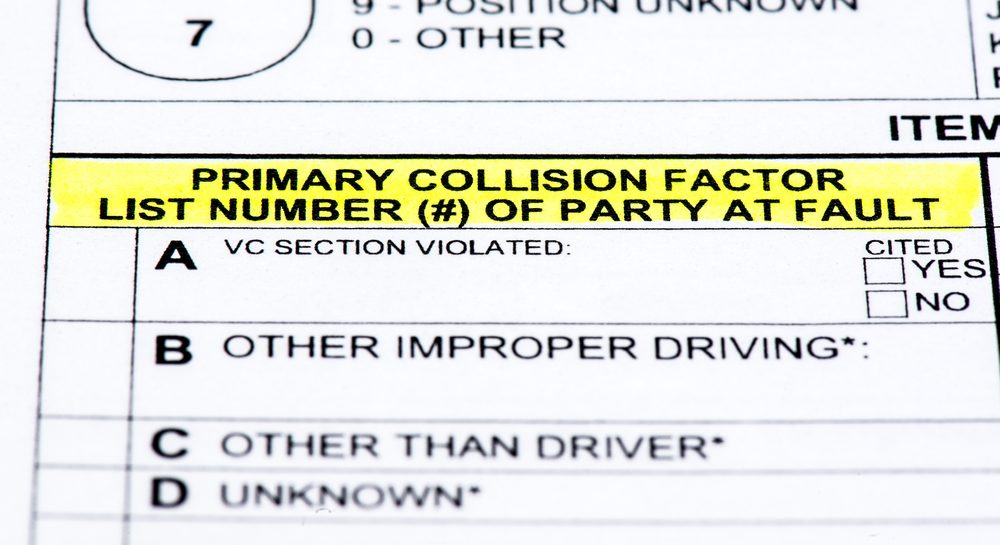According to Virginia law, if you are in a car accident where a victim has been injured and/or there has been significant property damage, you are required to report the accident to police. The problem is that it is often hard to estimate damages at the time of the accident, and even more importantly, there are many car crash injuries where signs of injuries can be delayed. Serious injuries, such as brain, back, or internal injuries, often take hours, sometimes days, before the victim will begin showing symptoms. This is why a Virginia Beach car accident attorney recommends that anyone involved in a crash contact local law enforcement to report the incident, even if it is just a minor fender bender.
Filing a Car Crash Claim
If the crash you were involved in was caused by the other driver’s negligence, having a police report when you file your claim with their insurance company can be strong evidence to bolster the claim and help ensure a fair settlement offer. The police report will affirm that the accident caused your injury and damage to your vehicle.
When you call the police and an officer arrives, the officer will first secure the scene to help ensure the safety of those involved in the crash and other motorists and pedestrians near the site and help secure and preserve evidence from the crash site.
The officer will then use their training and experience to investigate the crash site to determine who is at fault and if any laws that contributed to the accident were broken. The report will include the following information:
Contacts
The report should include all contact information for the other driver, including their insurance information. It will also include the contact information of passengers in the other vehicle and any witnesses who provided the officer with information about what they saw.
Details
The officer will include details of the crash, including the date, time, and location. They will also include the type and description of the vehicles involved in the crash. The report will summarize how the accident happened, including weather and road conditions at the time of the crash. The officer will also state their professional and educated opinion about which driver was at fault.
Statements
The accident report will also include statements of the drivers to the officer. A written summary of what each driver claims led up to the crash can also be helpful to prove your case if the other driver makes any incriminating statements or changes their story later on.
The officer will also add any witness statements to the report. These eyewitness statements can provide solid evidence if the other driver tries to deny liability for the crash.
Injuries
Injuries that anyone involved in the accident suffered will be described in the report and if emergency responders were called to the scene and provided treatment.
Property Damage
The report should also include a description of the damage done to the vehicles and any property at the accident scene. Many officers will also include a drawing so there is a visual description of the scene.
Traffic Violations
If any traffic violation citations were issued to the other driver, such as running a red light, this will also be included in the report and can be used as evidence in the case against the other driver. This also holds true for any arrests. For example, if the other driver was arrested at the scene for drunk driving, this information can be used against the driver in the accident claim, even if the charges are dropped or they are found not guilty.
Using a Police Report to Win Your Case
When a car accident claim is filed with the other driver’s insurance company, their insurance adjuster will also obtain a copy of the police report as they are conducting their own investigation into what caused the accident. In many cases, if the officer who prepared the report provides enough detail to make it almost impossible for the other driver to deny liability, the insurance adjuster may be more hesitant to try to deny or dispute the accident.
Both the insurance adjuster and your own car accident attorney can use the information from the report to help their investigation. For example, they can use the witness contact information to speak with witnesses about what they saw. The more information that can be used as evidence against the other driver, the more likely the insurance company will be willing to negotiate a fair settlement.
Call Our Virginia Beach Personal Injury Law Firm for Legal Assistance
If you have been injured in an accident, do not try to negotiate with the insurance company yourself. Let one of our dedicated Virginia car accident attorneys work on your behalf to get you the best possible outcome based on the circumstances of your case. We’ll focus on dealing with the insurance company, allowing you to focus on your recovery. Our firm is dedicated to getting our clients the financial compensation they deserve, which is why our attorneys have recovered more than $100 million in settlements and verdicts.
Contact Shapiro, Washburn & Sharp to schedule a free case evaluation and learn about your legal options. We have offices in Virginia Beach, Portsmouth, Norfolk, and Hampton.
RELATED CONTENT








